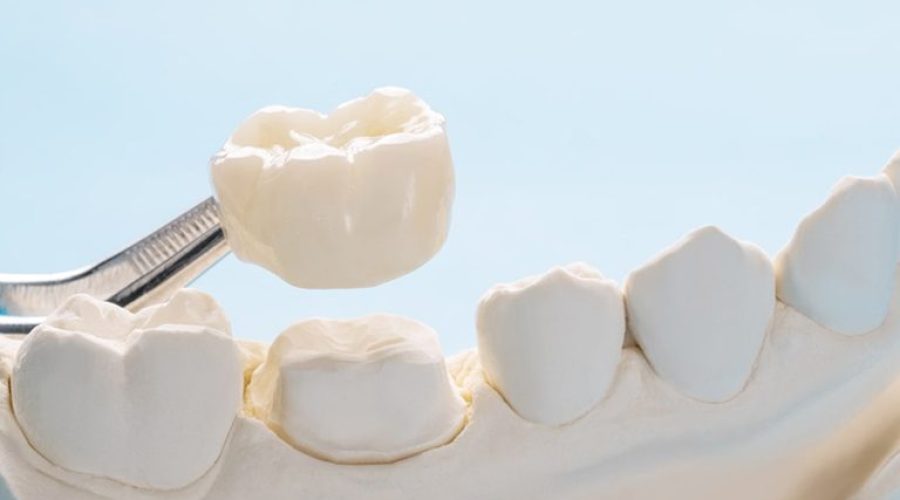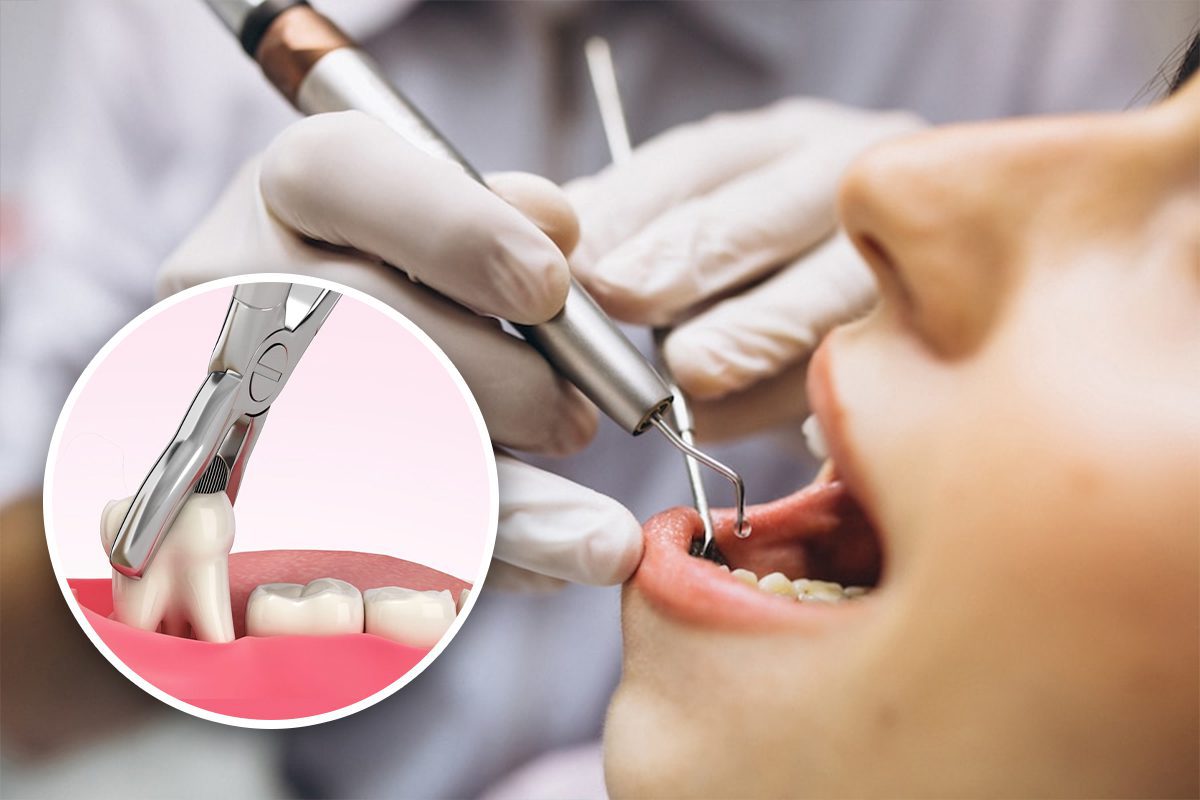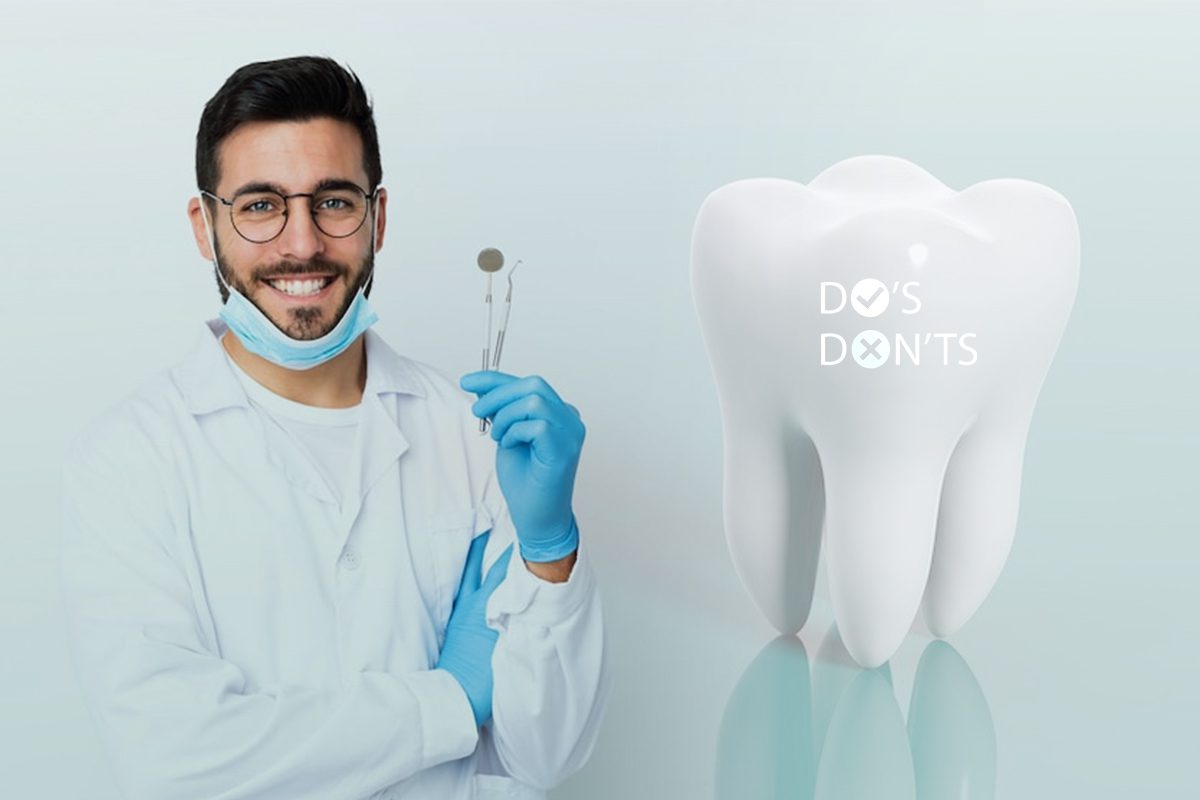Many dental treatments require the use of dental crowns. In addition, it is often used in contemporary dental restorative procedures. The dental crown is designed to look like a cap for a tooth and protect the structure above the gum line. A dental crown can restore the functioning and look at structural issues, aesthetic, infection, have damaged, or cosmetic issues.
Dentists commonly employ dental crowns to address various dental concerns, including strengthening, protecting, and improving the look of teeth. So, if you’re looking for a practical solution that also provides excellent protection, dental crowns are the key!
Dental Crowns are used for the following purposes:
- To keep pieces of a fractured tooth together or to keep a weak tooth from shattering
- To hold a dental bridge in position
- To support and cover a tooth with a large filling when there isn’t a lot of teeth left
- To replace a tooth that has been worn down or restore an already broken one
- To cover unstructured or severely discolored teeth
- To keep up with teeth cleaning efforts
Importance of Dental Crown Hygiene
A properly placed dental crown has a significantly expected lifespan of 10 to 15 years, but only when proper maintenance is followed. So, it is critical for patients with dental crowns to practice proper dental crown hygiene and other teeth and extend the restoration’s lifespan.
Therefore, the durability of crowns can be achieved; with proper care. Thus, identifying the significance of maintaining dental crown hygiene is becoming crucial. Following some basic tips may help guarantee that your crown offers you years of beautiful smiles.
Tips for maintaining Dental Crown Health
If you take care of your dental crown and keep it in good shape, it will last at least ten years. With amazing care, your crown dental will survive for a lifetime. Use these seven tips to make your crowns the ultimate dental restorations you’ll ever need.
1. Maintaining Proper Oral Hygiene
While dental crowns are resilient to decay and germs, the tooth structure beneath them is still vulnerable. As a result, patients must maintain proper dental hygiene at home. Daily brushing and flossing two times a day make a huge difference in maintaining the same.
Additionally, patients should always clean their teeth with a soft-bristled toothbrush. Over time, hard brushes can scrape and destroy porcelain.
2. If Crown Fitting Causes Discomfort, have it Adjusted.
If a person’s recently fitted crown is longer or shorter than the adjoining teeth, they should return to the dentist to have it adjusted. If left in place, a poorly placed crown will result in a faulty bite that can lead to problems such as jaw discomfort or harm to adjacent/opposing teeth.
The bite of a person might also change over time, making the dental crown irritating. Patients who have difficulty eating or speaking should have their crowns adjusted by a dentist.
3. Avoid Sticky, Hard, or Crunchy foods.
Dental crowns are robust and long-lasting but susceptible to damage. The meals you eat can have a major impact on your restoration’s long-term health. Sticky foods like caramels and taffy, for example, can displace the crown.
Chewing on hard sweets, nuts, and other hard foods, on the other hand, might cause your crown to chip and break. So, when necessary, avoid these items and only eat them in moderation.
4. Use a night guard
It’s one thing to try to break a grinding and clenching habit when you’re awake; at the very least, you’re conscious of your behaviour. The problem is that many individuals grind and clench their teeth when sleeping, and they’re probably unaware of it. Clenching and grinding may not appear to be major issues at first, but they can cause severe damage to your teeth over time.
Regular biting generates around 200 pounds of pressure per square inch, but grinding and clenching can dramatically increase that strain, putting your crown in danger of shattering.
5. Kick bad habits.
Bad habits such as nibbling your nails or grinding your teeth might cause the crown to loosen. Some people enjoy chewing ice, which is equally detrimental to the dental crown. Give significant attention to the area where the gums meet the teeth as you go about your everyday oral hygiene routine.
6. Have regular dental exams
A person with a healthy mouth should get a regular check-up once every six months for teeth cleaning, and one with dental issues should visit the dentist as often as suggested.
Routine check-ups are essential for ensuring that a patient’s dental crowns are in excellent working order.
During these examinations, the dentist checks to see if the teeth with dental crowns are healthy. They also check that the crowns are still securely fastened. If the crown is found to be loose, it will be modified once the underlying source of the problem has been addressed.
7. Choose the right toothpaste.
When dental crowns are used to replace teeth, it’s important to keep in mind that plaque may build up on crowns just like it can on normal teeth. Therefore they should be cleaned properly and on a routine basis. This is when an anti-plaque toothpaste comes in handy in preventing plaque.
Also, fluoride-based toothpaste is recommended because it can help protect the natural tooth structure from further damage and decay.
Care for your dental crown now!
You don’t need to make any major lifestyle changes to keep your crowns healthy. Basic oral hygiene and frequent dental exams are all that are required.
Euro-Dent provides a comprehensive range of dental services to assist you in repairing and maintaining healthy teeth. We are dedicated to delivering comprehensive, effective treatment, whether you require a simple dental crown or extensive dental procedures.
If you’re looking for a dental clinic in Antwerpen and need some guidance on how to take care of your teeth, give us a call.




